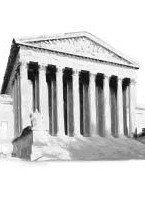Husserl Fenomenolojı̇sine Köprüler Kurmak
Bu makale Husserl fenomenolojisine köprüler kurmayı amaçlamaktadır. Bunun için de Husserl’in karşılaştığı felsefi problemlerden yola çıkacaktır. Makalede problemler üç başlık altında toplanmıştır. Bunlardan ilki Descartes’la başlayan modern felsefedeki özne merkezlilik, zihin-madde dualizmi ve yeni dünya anlayışıdır. İkincisisi ise, on dokuzuncu yüzyılda bilimlerin yükselişiyle birlikte karşımıza çıkan ontolojik, epistemolojik ve metodolojik yapıdır. Üçüncüsü de, bu yükseliş karşısında felsefenin yaşadığı meşruiyet problemidir. Husserl modern felsefedeki sorunları, bilincin kasıtlı olması, epokhe ve transandental indirgeme ile çözmeyi dener. Bilimlerin yükselişiyle karşılaştığı yapıya ise, her şeyin bilimsel bilgiyle ele alınamayacağı, yaşama dünyasının nedensellik ilkesine dayanarak anlaşılamayacağı ve bu bağlamda fenomenolojinin gerekli olduğu düşüncesiyle itiraz eder. Felsefenin bilimler karşısında yaşadığı meşruiyet krizini de hem felsefenin bundan böyle transandental fenomenoloji olduğu hem de bilimlere temel olduğu teziyle çözmeyi dener.
Anahtar Kelimeler:
Husserl, Fenomenoloji, Epokhe, Transandental Felsefe, İndirgeme
Building Bridges to Husserl’s Phenomenology
This article aims to build bridges to Husserl's Phenomenology. For that purpose, the article starts the path from philosophical problems that Husserl encounters. Problems are examined under three headlines in the article. First headline is subject-centrism, mind-matter dualism and understanding of a new world in modern philosophy that started with Descartes. Second is the ontological, epistemological and methodological entity that we encountered with the rise of sciences in the 19th century. While third headline being the justification problem that philosophy experienced with this arise. At this juncture, Husserl tries to solve problems in modern philosophy with epoche, deliberate consciousness and transcendental reduction. Meanwhile, he objects to the entity that he encountered with the rise of sciences, by saying not everything can be handled with scientific information, the living world cannot be understood through causality principle and in this context, phenomenology is necessary. He tries to solve the justification crisis that philosophy experiences facing sciences, through the thesis that philosophy is, from now on, transcendental phenomenology and a basis to the sciences.
Keywords:
Husserl, Phenomenology, Epoche, Transcendental Phenomenology, Reduction,
___
- CROWELL, Steven (2016). “What Is It to Think?”, Phenomenology of Thinking Philosophical Investigations Into the Character of Cognitive Experiences, ed. by T. Breyer&C. Gutland, London: Routledge.
- HUSSERL, Edmund (1976). Ideen zu Einer Reinen Phänomenologie und Phänomenologischen Philosophie Erstes Buch, Allgemeine Einführung in die Reine Phänomenologie, Husserliana Den Haag: Martinus Nijhoff.
- HUSSERL, Edmund (1982). Cartesian Meditations: An Introduction to Phenomenology, trans. D. Cairns. The Hague: Martinus Nijhoff.
- HUSSERL, Edmund (1997). Kesin Bir Bilim Olarak Felsefe, çev. A. Kaygı, Ankara: Türkiye Felsefe Kurumu.
- HUSSERL, Edmund (2010). Fenomenoloji Üzerine Beş Ders, çev. H. Tepe, Ankara: Bilgesu Yayıncılık.
- KOCKELMANS, Josef J. (2007). “Edmund Husserl ve Fenomenoloji”, Cogito, 50: Bellek: Öncesiz Sonrasız, İstanbul: Yapı Kredi Yayıncılık.
- LEWIS, Michael&Staehler, Tanja (2019). Fenomenoloji, çev. O. B. Kaplan, M. Demirhan, M. Türkan, N. Şahankaya, M. B. Gürsoy, Ankara: Fol Kitap.
- MOHANTY. J. N. (2006). “Intentionality”, A Companion to Phenomenology and Existentialism, ed. by M. A. Wrathall&H. L. Dreyfus, Oxford: Blackwell.
- SMITH, David Woodruff (2016). “Thinking About This Individual”, Phenomenology of Thinking Philosophical Investigations Into the Character of Cognitive Experiences, ed. by T. Breyer & C. Gutland, London: Routledge.
- WRATHALL, Mark A. & Hubert L. DREYFUS (2006). “A Brief Introduction to Phenomenology and Existentialism”, A Companion to Phenomenology and Existentialism, ed. by M. A. Wrathall&H. L. Dreyfus, Oxford: Blackwell.
- ZAHAVI, Dan (2019). Phenomenology the Basics, Newyork: Routledge.
- Yayın Aralığı: Yılda 2 Sayı
- Başlangıç: 2002
- Yayıncı: Bursa Uludağ Üniversitesi
Sayıdaki Diğer Makaleler
Bilgi ve Değer Bağlamında “İyi Tasarım” Kavramının İzinin Sürülmesi
Murad BABADAĞ, Oğuz HAŞLAKOĞLU
Toplumsallığa İlişkin İki Farklı Görüş: Rousseau versus Rousseau
Boole Cebiri ve Aristoteles'in Mantığı
Megaralı Philon’da Koşullu Önerme Anlayışı ve Modern Mantıkta Maddi İçerme Kavramının Oluşumu
Kant ve Hegel’in Felsefesinde Özgürlük
Analitik Felsefe Neden Natüralizme Karşıdır?
Hakikatin Ötesi, Berisi, Kendisi: “Hakikat-ötesi” Kavramına Dair Eleştirel Bir Çözümleme
Posthumanizm Tartışmasının Düşündürdükleri: Haddini Bilmek ile Haddini Aşmak Arasında İnsan
